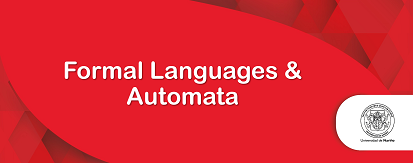
Formal Languages and Automata theory is a fundamental topic in computer science. It helps to understand the theoretical basis of computation and is the basis for many important concepts in computer science, such as compiler design, parsing, code optimization, algorithm analysis, and many others. Here are some justifications for learning Formal Languages and Automata in computer science:
Theoretical foundations: Formal Languages and Automata theory is the basis of computer science. It provides a theoretical foundation for the study of algorithms, data structures, and programming languages.
Compiler design: Compiler design is the process of translating high-level programming languages into machine code. The theory of Formal Languages and Automata helps in the design and analysis of compilers.
Parsing: Parsing is the process of analyzing a text according to the rules of formal grammar. Formal Languages and Automata theory provides the basis for understanding parsing techniques and designing parsers.
Code optimization: Formal Languages and Automata theory helps in the design and analysis of code optimization techniques.
Algorithm analysis: Formal Languages and Automata theory is useful in the analysis of algorithms, particularly in determining their time and space complexity.
Artificial intelligence: Formal Languages and Automata theory has applications in artificial intelligence, particularly in natural language processing and speech recognition.
In summary, learning Formal Languages and Automata theory is essential for any computer science student. It helps in understanding the theoretical foundations of computation and provides a basis for many important concepts in computer science.
- Docente: Jesus Insuasti
